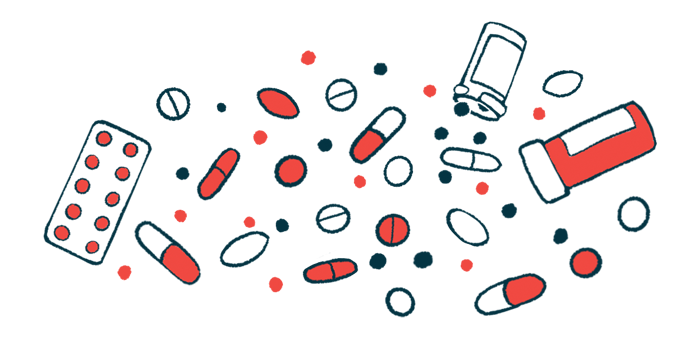DMT use does not seem to affect sleep quality, daytime sleepiness
But believing DMTs worsen sleep quality may become self-fulfilling prophecy
Written by |

The use of disease-modifying therapies (DMTs) does not seem to affect sleep quality or daytime sleepiness in people with multiple sclerosis (MS), an Australian study finds.
However, patients with a belief that DMT use impacted their sleep tended to have poorer sleep quality and report that the medication interfered with their daily functioning. These findings highlight the “need for education to diminish negative perceptions of DMT use,” researchers wrote.
The study, “Disease-modifying therapies do not affect sleep quality or daytime sleepiness in a large Australian MS cohort,” was published in the journal Multiple Sclerosis and Related Disorders.
Sleep problems common among MS patients
Sleep problems are a common symptom of MS, with about 68% of patients reporting sleep issues compared with 40% of the general population. Lack of restful sleep is known to impair quality of life, limiting the ability of patients to perform daily activities and engage socially with others.
DMTs, or treatments that alter the course of MS, are used to prevent relapses and disability accumulation in people with the condition. In Australia, an estimated 64% of MS patients are prescribed a DMT.
However, the extent to which these treatments may affect sleep patterns has not been fully investigated. While some of these therapies have a positive impact on sleep, others have been shown to worsen sleep problems.
To find out more, researchers in Australia investigated the effects of different DMTs on sleep outcomes in a group of MS patients enrolled in the Australian MS Longitudinal Study. Particularly, the team assessed if certain DMTs or DMT categories had an association with self-reported sleep quality and daytime sleepiness.
Our results suggest that whatever the causes of poor sleep are in people living with MS, using a DMT may not be one of them.
Analysis included 1,715 MS patients, 80% of them women
The analysis included 1,715 patients, 80% of whom were women, with a mean age of 57.7 years. About half (50.7%) had relapsing-remitting MS and about 60% had moderate or severe levels of disability.
Overall, 64% of the patients reported using a DMT at the time of the study, with the majority (93%) following the administration instructions. The most common DMTs — used by 63% of patients — were high-efficacy therapies such as the oral medications Mavenclad (cladribine) and Gilenya (fingolimod), as well as the antibody-based therapies Tysabri (natalizumab), Lemtrada (alemtuzumab), and Ocrevus (ocrelizumab).
Participants were asked to rate their sleep outcomes using the self-report questionnaires Pittsburgh Sleep Quality Index (PSQI) and the Epworth Sleepiness Scale (ESS). The PSQI evaluates sleep quality and sleep patterns, while the ESS assesses daytime sleepiness, or an individual’s propensity to fall asleep during the day.
The patients were also asked about how often sleep problems interfered with their daily activities or social engagement. Overall, sleep problems that interfered with these activities were reported by 45% of the respondents.
Sleep quality, daytime sleepiness found to be unaffected by DMT use
Results showed no differences in sleep quality between patients who did and did not use a DMT. Sleep quality also was not impacted by the efficacy of the DMT used, by the time of day of administration, or by whether the DMT was taken as recommended. The same findings were found for daytime sleepiness.
However, patients who perceived that DMT use worsened their sleep reported poorer sleep quality than those who had no such perception, and believed that sleep problems more commonly interfered with their daily and social activities.
Perceptions of DMT use making sleep worse did not affect daytime sleepiness.
“Our results suggest that whatever the causes of poor sleep are in people living with MS, using a DMT may not be one of them,” the researchers concluded, noting however that more research is needed to “identify any possible direct impact of DMT administration on immediate sleep quality.”
